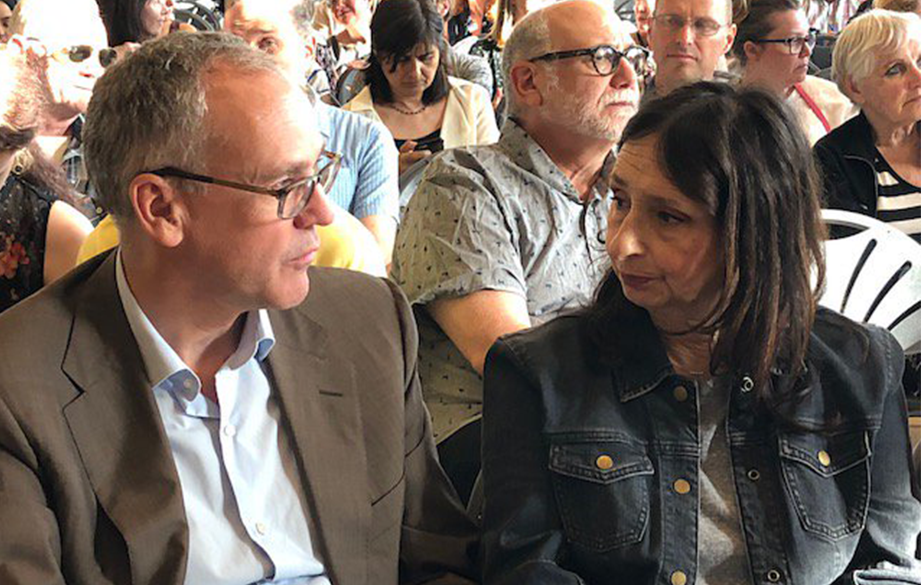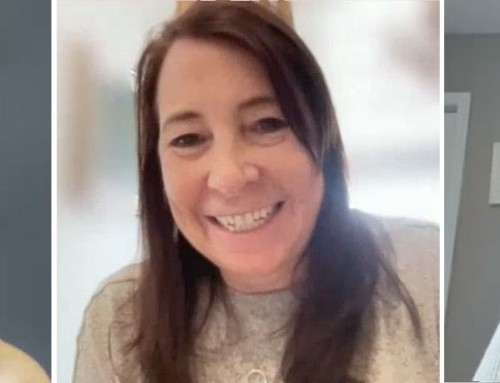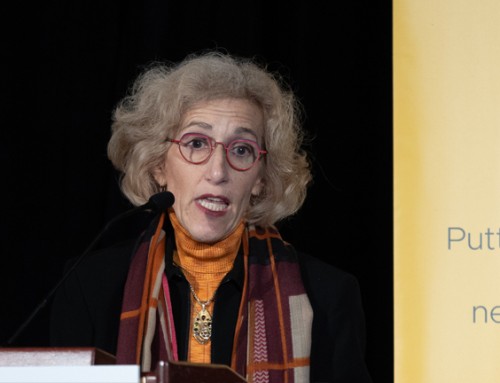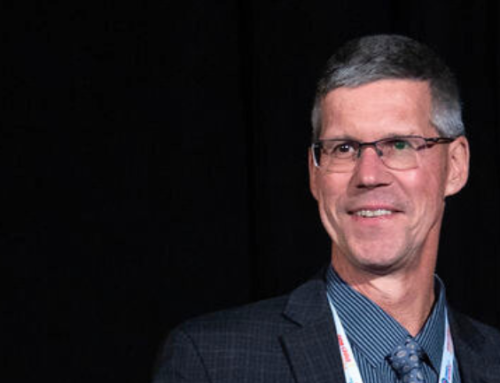As young people with disabilities head towards adulthood, they find themselves cut off from familiar health services only to fall through the cracks of a fragmented adult care system.
For many families raising children with disabilities, this transition is so abrupt and disorientating that it is described as “falling off the cliff”. While youth with disabilities and high needs may grow up supported by a painstakingly assembled and complex network of care, that network is broken when they age out into an adult health system that is both intimidating and ill-prepared.
Last month, Dr. Jan Willem Gorter, KBHN investigator, Director of CanChild at McMaster, and transition clinician, had the opportunity to share about this critical, Canada-wide issue in CBC’s White Coat Black Art’s town hall, Crisis in Care. People with disabilities, family members, and caregivers gathered to openly discuss their experiences and struggles with transitions as well as advocate for potential solutions.
“The issue of transitions isn’t new; the literature goes way back,” commented Dr. Gorter during the town hall. “The issues have always been the same, what has changed is the numbers. In the success of pediatrics, we see more young people surviving into adulthood. What we also see is an approach, or thinking towards a life course approach, which would be completely seamless…What families want and need is continuity in care.”
Stories that spark discussion
Crisis in Care was a town hall-style event with a diverse panel that was hosted by CBC’s White Coat Black Art, “an original and provocative show demystifying the world of medicine.” The town hall and its topic of transitions was inspired by the story of Gillian Geddes, a girl with autism and high support needs on the cusp of aging out of the pediatric system. In February, White Coat Black Art host Brian Goldman, interviewed Gilly’s parents about their forthcoming transition.
At the time, Gilly was almost 19, and knew only a handful of words. Unable to live independently, she relies heavily on her parents’ care and day programs including school. In two years, she will be forced to leave the public school system, and the Geddes will have to find scarce alternative day programming and support. Her parents want Gilly to live at home as long as possible, but face the reality that she will require lifelong support. The wait for residential care is currently 20 years long in Ontario. Gillian is one among 12,000 young and middle-aged adults with disabilities in need of residential care and other services.
At the town hall, parents, caregivers, and people with disabilities all spoke of struggles, fear, and discouragement. Rose Canto, one of the panelists, said she worries about how she will care for her son, who has severe cerebral palsy, on her own without funding once he ages out of the system. With his fragile medical state, he requires 24-hour support.
Kids Brain Health researchers focus on transitions
Dr. Gorter has first-hand experience working with families facing the abyss at his transition clinic at McMaster Children’s Hospital. Even with this familiarity, he says that he was touched by hearing so many families’ struggles at the town hall, especially because he knew there were many families that could not attend.
“I received feedback from families in my clinic and families I work with through our transition research who felt supported by the show,” he commented. “I also felt encouraged to speak up and help advocate on behalf of the families, as their voices often do not get heard, and I had the opportunity to make a contribution as a panel member.”
The clinic takes a multi-disciplinary approach to transitions, bringing in a range of experts from occupational therapists to social workers. The goal is to provide opportunities for youth with disabilities and their families to start conversations with specialists about the future.
“My perspective has changed over the years from a traditional, reactive approach to health issues, to a proactive, strength-based approach to development,” says Dr. Gorter says. “We also have an eye for a person’s everyday environment (at home, at school and in the community) and hopes for the future – we call this a life course health development approach.”
Dr. Lucy Lach, a KBHN investigator based at McGill University, is the co-lead for KBHN’s Social Determinants of Heath. She also works with young adults with disabilities who are facing these transitions.
“Some people think that the transitions are just between institutions, but it’s so much more than that,” she says. “It’s a transition from high school into the world beyond, a transition from child-oriented services to adult orientated social services, a transition in benefits. Not just acute care, but rehab too.”
Her research has helped identify the top needs of families raising children with disabilities as the children exit high school, including social opportunities and meaningful engagement in the community, lack of coordination between child and adult health, and a roadmap for long term planning.
The issues that families are dealing with go far beyond healthcare. “It can include housing, education and employment opportunities,” adds Dr. Gorter. “Ultimately, it’s about supporting young people to participate to the fullest.”
Forward momentum into the future
While the town hall encouraged solidarity, the goal was to spark change. The key is forward momentum.
Nobody can solve the crisis in care on their own, emphasizes Dr. Gorter. He points to CIHR’s recently announced Transition in Care initiative as a great opportunity in Canada to generate new knowledge and evidence-based solutions.
“We need to unite and work together to give a voice to young people with disabilities / high needs and their families,” he says. “We need to raise awareness about this crisis as often it is invisible to the general public, and inform the public and policy makers at the provincial and the national level. I strongly believe that a national strategy would be helpful in the long term.”
Internationally, there have been big moves for transitions care. Last month in the US, the National Alliance to Advance Adolescent Health received a 5 year award to continue Got Transition, a national resource centre that support youth and their families as they transition into the adult health care centre.
“It is time that we create this in Canada,” Dr. Gorter comments. “I believe the time is ripe to truly turn the tide on transition. I hope to bring together a team of researchers, healthcare providers, patients, families, and other stakeholders to create a national transition knowledge hub in Canada.”
“The goal is to make transitions better for a whole generation of young people with high needs, both medical and service needs,” adds Dr. Gorter.
Dr. Lach concurs that a national strategy will help, but many hands will be required to make it work. “A strategy will make it visible, but it in itself won’t solve the problem,” she comments. “Part of that solution has to involve parents and community organizers who can come together to access supports. We’ll need agitators that are going to get behind the strategy and implement it.”
Crisis in Care proved to be an empowering event, encouraging empathy and advocating for tangible change in transitions. Now that momentum needs to carry on.
As the host, Brian Goldman, said at the end of the night: “This discussion is far from over”.








